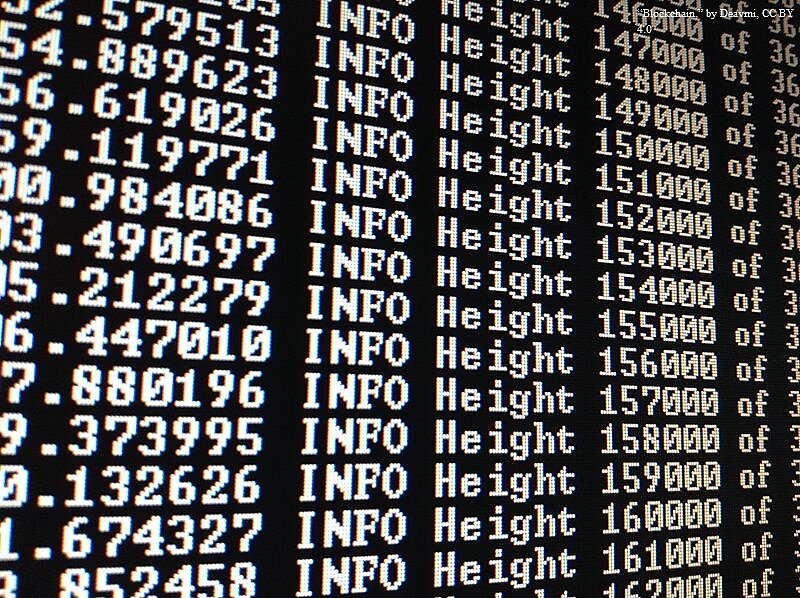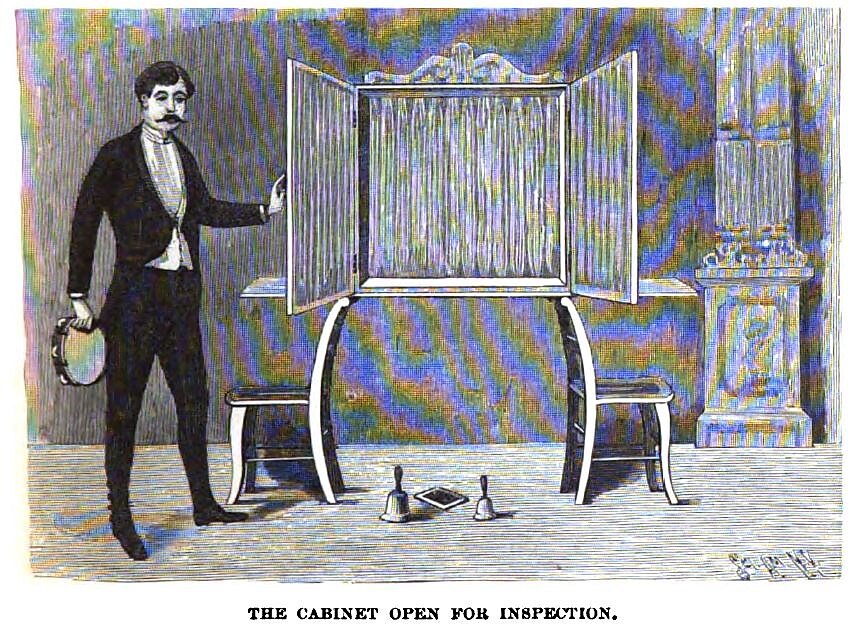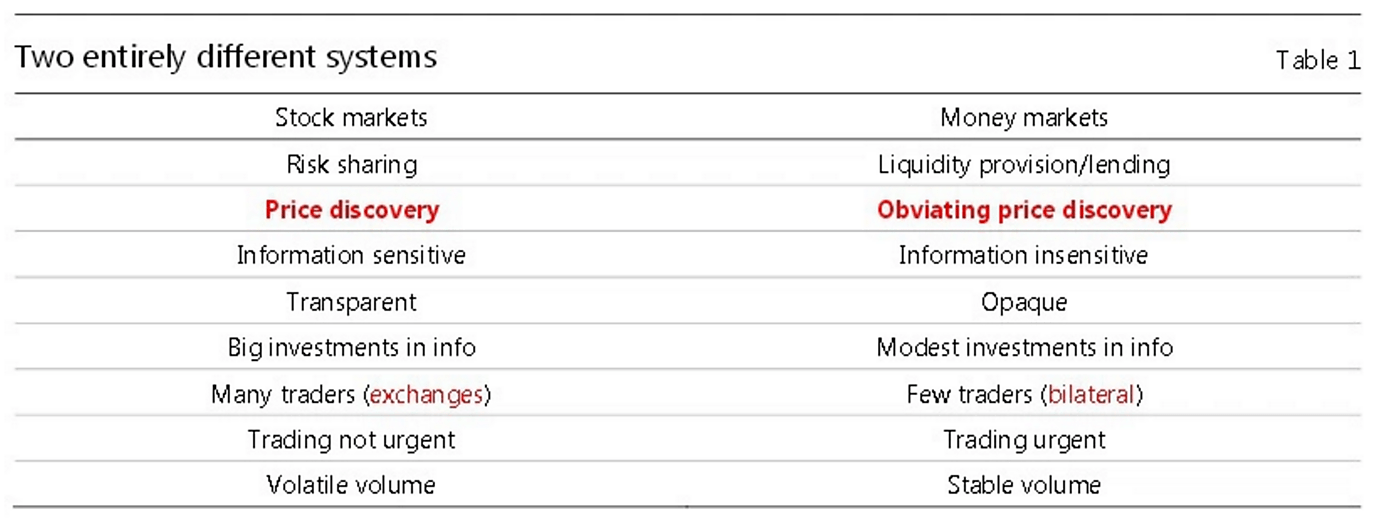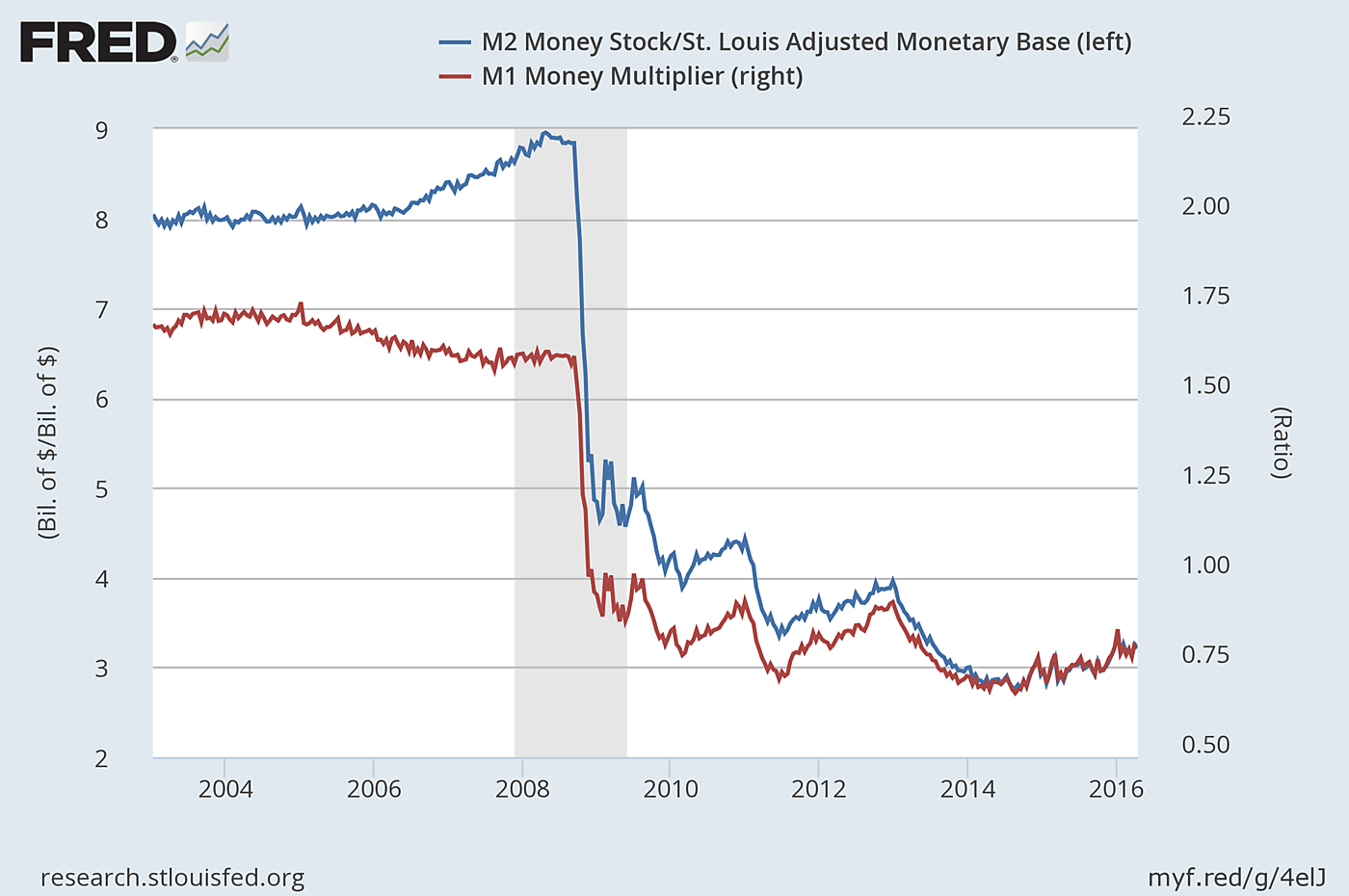So much for a summary of Part 1. Now for the hard part: dealing with the many questions this summary raises. How can a central bank manage a quantity without being certain just how to define, let alone measure, that quantity? How is it possible for the quantity of money supplied to differ from the quantity demanded? When those things do differ, how can one tell? Finally, just what does “the demand for money” mean?
The Demand for Money isn’t Unlimited
The suggestion that there’s such a things as a “demand for money,” comparable to the demand for, say, heating oil, is one that many people find hard to accept. But in truth the demand for money is a lot more like the demand for heating oil than many suppose. Just as anyone with an oil furnace needs to keep some heating oil on hand in case the temperature drops, allowing the furnace to consume it gradually, while counting on regular deliveries to replenish the supply, people who can afford to keep some money — currency and bank deposits and checkable money funds and the like — on hand, drawing down the inventory to pay for other things, and replenishing it now and then out of their earnings, or perhaps by selling some non-monetary assets. Notice that it’s by holding on to money rather than by spending it that people evince a demand for the stuff.
Money’s role as a generally-accepted means of payment means that the real demand for it (that is, the average sum of monetary purchasing power people like to have on hand) tends to increase along with the amount of real purchasing to be done. But just as the demand for heating oil in a city can increase independently of the total volume of inhabited interior space in that city (owing, say, to a decline in average temperature), so too can the demand for money vary independently of the total volume of an economy’s output, becoming more intense, for example, when interest rates on non-monetary assets are relatively low, and during times of greater economic uncertainty.
One difference between money and heating oil that tends to obscure the fact that people demand one no less than they do the other is that people actually purchase heating oil, whereas they seldom purchase money except when trading one sort of cash (say, dollars) for another (say, Euros). The reason for this is simple: because an economy’s generally accepted means of payment is also what most people earn in exchange for their labor, or for goods they sell, no one has to “shop” for money. Instead, they get paid in money, and then trade whatever they don’t wish to keep on hand for other things. In other words, people contribute to the overall demand for goods and services, or “aggregate demand,” whenever they trade money for other stuff, whereas they contribute to the overall demand for money to the extent that they refrain from trading money for other things.
Receiving Money isn’t the same as Demanding It
The fact that the public’s demand for money consists of its willingness to hold on to monetary assets instead of spending them is important for several reasons. First, it allows us to distinguish the demand for money from mere willingness to receive money in payments. The fact that money is a generally accepted means of payment means that no one is likely to refuse to accept it in payments, let alone as a gift. But this doesn’t mean that there’s no meaningful sense in which the public’s demand for money can be said to be limited or finite. People may accept all the money they can get their hands on; but they “demand” money only to the extent that they refrain from spending it, and only for precisely as long as they refrain from spending it.
The insight also allows us to distinguish between the demand for money and the demand for credit, that is, the demand for various sorts of loans. Here again, money’s role as a generally accepted means of payment can be confusing, because it means that a loan is likely to consist of a loan of money. Yet most borrowers borrow, not to add to their money holdings, but to acquire other things, like cars and real estate, or (if they are business borrowers) to pay for labor, raw materials, or other inputs. The fact that the demand for credit is distinct from the demand for money, and that the two things can change independently, means, among other things, that interest rates, which adjust to “clear” markets for various kinds of credit, cannot also be counted on to “clear” the market for money balances. No matter what all too many textbooks say, interest can’t be the “price” of money, since it is busy being the price of credit, which is something else again; and perhaps no belief in the history of monetary economics has done more damage than the belief that monetary expansion is a reliable means for reducing interest rates. In fact the relation between monetary changes on one hand and interest rate movements on the other is, as I’ll explain in a later segment, far more complicated than that.
Look, Ma: No Monetary Aggregates!
Finally, the fact that an increased demand for money manifests itself in peoples’ refraining from spending the stuff, while a decline in the demand for money translates into increased spending, means that one can get a handle on whether an economy has too much, too little, or just enough money without having to decide just what “money” consists of. One need only keep track of overall spending or aggregate demand. Whenever overall spending goes up, that’s a sign that the supply of money is growing faster than the demand for it. When it shrinks, it’s a sign that demand for money is growing relative to the available supply. In short, there’s no need to keep track of any particular monetary measure, or to estimate the public’s demand for the stuff that makes up that measure. The behavior of spending supplies most of the information central bankers need to manage their nations’ money supplies responsibly.
We are still a long way, though, from being able to say anything — or anything compelling — about the proper conduct of monetary policy. That changes in spending tend to imply that the demand for money is increasing or declining relative to some given supply doesn’t necessarily mean that a stable level of spending is ideal, much less that monetary policy should be conducted with the aim of keeping spending stable. That’s so for two reasons. First, a person’s demand for money is, strictly speaking, not a demand for any particular number of money units, such as dollars, but a demand for a certain amount of purchasing power. If, at some given level of prices, I consider an average money balance of $1000 adequate for my needs, then, if prices fall to half that original level, $500 will serve me just as well as a $1000 did before.
It follows — and this is the second point — that there are, in principle, two different ways in which any shortage or surplus of dollars can be corrected. One is to eliminate the shortage or surplus by means of an appropriate change in the available number of dollars of different sorts; the other is to eliminate it by means of an appropriate change in the general level of prices, and hence in every dollar’s purchasing power. Other things equal, the higher the price level, the greater the quantity of money people will wish to hold; and the lower the price level, the smaller the quantity of money needed. In principle, then, instead of attempting to prevent changes to the supply of or demand for money balances from leading to changes in the flow of spending, monetary authorities might be inclined to allow total spending to either rise or decline, perhaps at a rapid rate, or even to fluctuate willy-nilly, while relying on changes in the price level to keep the demand for money from veering for long, if ever, from the supply. If they could get away with that, there would be no need to manage the supply of money after all.
There’s no doubting that, when monetary authorities allow spending in their economies to rise or decline substantially, and even dramatically, the changes in spending eventually promote such price level adjustments as are required to return to a state of monetary equilibrium. It’s also true that, were prices all “perfectly flexible,” so that they responded both immediately and adequately to any change in the overall flow of spending, there could be no such thing as shortages or surpluses of money. In such a world, a money supply that responded to changes in the demand for money wouldn’t be much of an improvement, assuming that it would improve at all, upon a money stock that was absolutely constant, or one that varied arbitrarily.[1]
Then again, in a world of perfectly flexible prices, an accommodative monetary arrangement could hardly be worse than any other. And our price system is not, in fact, one that can be expected to instantly accommodate every sort of change to the supply of or demand for money. Why that is so, and why some monetary policies are in fact a lot better than others, will be the subjects of the next installment.
Continue Reading A Monetary Policy Primer:
- Part 1: Money
- Part 2: The Demand for Money
- Part 3: The Price Level
- Part 4: Stable Prices or Stable Spending?
- Part 5: The Supply of Money
- Part 6: The Reserve-Deposit Multiplier
- Part 7: Monetary Control, Then
- Part 8: Money in the Latest Great Muddle
- Part 9: Monetary Control, Now
- Part 10: Discretion, or a Rule?
- Part 11: Last-Resort Lending
- Part 12: Monetary Alternatives
____________________________
1. In fact even perfectly flexible prices wouldn’t necessarily suffice to avoid troubles connected to changes in the flow of spending so long as those changes are not fully anticipated and contracts are not fully “indexed” so as to mimic contracts that would have been written in a world of perfect foresight. Consider the case in which an unanticipated halving of the money stock results in an immediate halving of all prices. The halving of prices would suffice to keep the nominal quantity of money supplied equal to the quantity demanded. But it could hardly serve to make up for losses connected to any fixed nominal contracts outstanding at the time of the monetary collapse.






